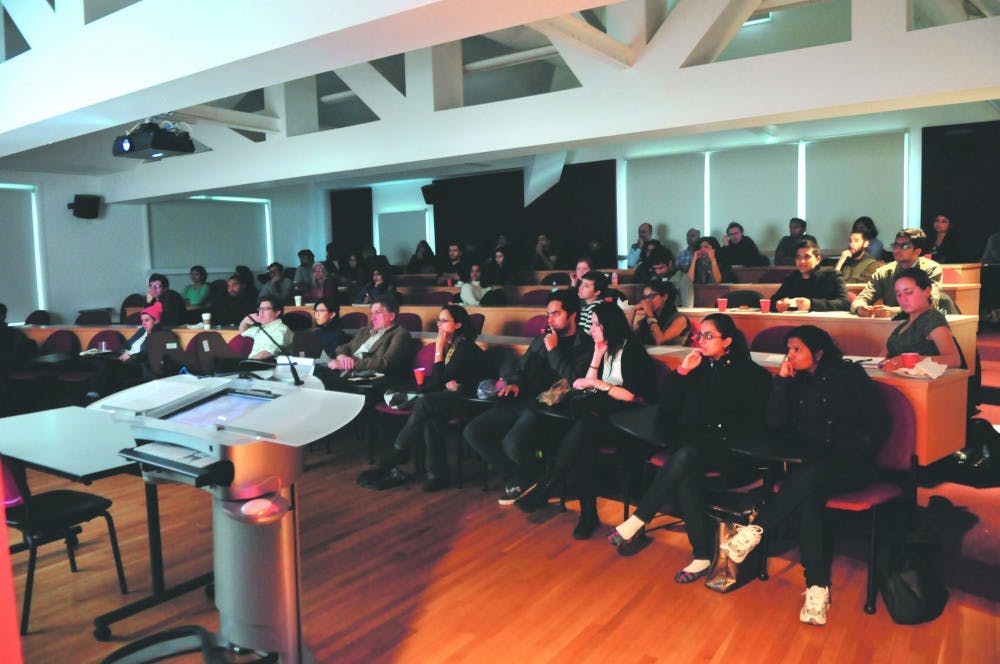
A rescinded invitation isn’t necessarily a forgotten one.
Narendra Modi — chief minister of the Indian state of Gujarat who has drawn controversy for his association with riots in that region in 2002 — had been scheduled as the keynote speaker at the Wharton Indian Economic Forum this weekend. Penn students and professors drafted a petition protesting Wharton’s invitation, and Modi’s address was cancelled.
Last night in Fisher-Bennett Hall, however, the debate concerning Modi and the disinvitation continued with a screening of “Final Solution,” a documentary about the Hindu-Muslim riots in India.
“Final Solution” begins with a Muslim attack on a train car in Godhra that killed 59 people, and then narrates the months that followed the attack. In telling this story, the film documents the violence that some Hindus inflicted against Muslims, sometimes intentionally ignored by local police.
For some in the audience, this was already an unpleasantly familiar story.
Nishrin Hussain, daughter of the former Indian Parliament member Ahsan Jafri, explained in a post-screening talk that Jafri had been brutalized and killed while trying to protect fellow Muslims from armed Hindus.
Hussain drew a direct link between Modi and the suffering that her family and acquaintances experienced, saying that “Modi is not the right person to speak” at the conference and that “he should be in jail.”
Modi is a popular yet polarizing figure. A likely contender to become the next prime minister of India, he’s known for his leadership in Gujarat’s economic development.
The screening and Hussain’s address were followed by a discussion moderated by English professor Suvir Kaul, an organizer of the petition against Modi’s invitation.
Monika Bhagat-Kennedy, an English doctoral student who signed the petition, said that “Modi had said it’s okay for the police not to intervene … if a leader turns a blind eye to violence, how is that something we can ignore?”
First-year Law School student Jai Dehadrai, who has clerked in the Indian Supreme Court, had a very different perspective.
He said the documentary and the ensuing conversation were a “vilification [of Modi]” and that despite claims that Indian courts are failing to prosecute the 2002 rioters, “so much has happened in the judicial process that hasn’t been recorded.”
Another first-year law student, Abhay Chattopadhyay, gave a broader historical perspective to the debate.
“There’s an inherent hypocrisy in the way we deal with Modi,” he said.
While Modi may well be worthy of Dehadrai’s “vilification,” he said, Indians politics has shown a long pattern of failing to hold its leaders accountable for widespread violence.
Though Kaul, the moderator, often had to call for quiet over the heated conversations, the conflicting opinions formed an essential part of the night’s event.
As Bhagat-Kennedy emphasized — while the audience headed home after about four hours — the important thing was to “keep [the discussion] alive.”
The Daily Pennsylvanian is an independent, student-run newspaper. Please consider making a donation to support the coverage that shapes the University. Your generosity ensures a future of strong journalism at Penn.
DonatePlease note All comments are eligible for publication in The Daily Pennsylvanian.







